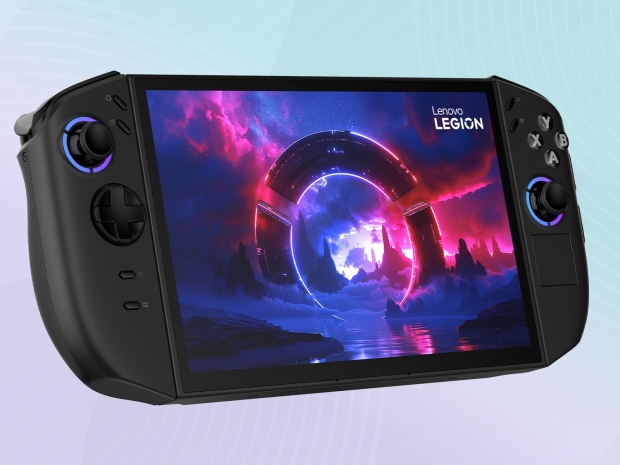According to VideoCardz the Legion Go 2 was first teased at CES 2025 as Lenovo’s next-gen Windows handheld, supposedly powered by AMD’s Ryzen Z2 Extreme APU with Zen 5 CPU cores and RDNA 3.5 graphics.
The leaked units were not running the final silicon. Chinese content creators have tested one of the prototypes and confirmed it’s using the earlier Ryzen Z2, essentially a rebadged Ryzen Z1 Extreme with Zen 4 cores.
The prototype itself dates to December 2024 and matches the specs Lenovo showed during its CES presentation.
Compared to the first-gen Legion Go, it doubles the memory capacity to 32 GB of LPDDR5-7500 and features a Samsung 1200p RGB OLED display free from the usual Pentile subpixel issues. It lacks a webcam but swaps in a Mediatek Wi-Fi card, which handles Windows game streaming better than the common AH210 module.
Performance is in line with other Ryzen 7840U/Z2 handhelds. Expect around 1.5 hours of battery life at a 30W TDP and roughly 48W total power draw. Thermals seem well managed, with the device hovering around 60°C under sustained load while keeping fan noise low. Lenovo’s software suite is already running on the prototype, offering TDP and fan curve controls, FPS caps, vibration adjustments, and some productivity tools.
The detachable controllers can switch between WASD keyboard or mouse modes, making them more versatile than traditional gamepad layouts on an 8.8-inch device. The build also includes a kickstand and controller dock. However, the Legion Go 2 is hefty. At around 938 g, it outweighs other handhelds like the Zotac ZBOX (~750 g), Switch 2 (~618 g), and Redmagic G8 Pro with its handle (~721 g).
What makes this leak more interesting is how the prototypes are being sold. They’ve appeared on Xianyu, known as GoFish in English, a Chinese marketplace popular for engineering samples and pre-production hardware. These aren’t final mass-production units, so buyers risk missing future software updates or driver support.
The final version is still expected to feature AMD’s Ryzen Z2 Extreme, which would bring Zen 5 CPU cores and higher efficiency. But for now, Lenovo has been silent on updates. Only Lenovo LATAM has hinted at a September release.
If you want one early, you’ll need to trawl grey-market resellers and live with a prototype. For everyone else, it looks like we’re waiting for Lenovo to finally get its act together.




